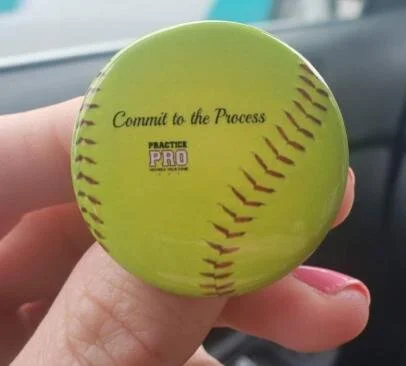Think back to your last golf round. What type of player are you? Are you praying that you'll hit your next shot in the air, or are you calculating the difference between the 5 and 6 iron? Are you just trying keep up with the rest of your group, or are you visualizing the angle of your draw?
These questions show a clear difference in competency level. One person is competing while the other is focused on skill development, without knowing what skill needs to be developed. She just knows she has to get the ball over there, with no idea how.
Without mechanical competence, your daughter's only thoughts will be, “Please throw a strike and don’t embarrass myself!” as opposed to, “I’m going to strike this girl out with a low fastball then and outside change.” Unfortunately, pitchers will go through this thought process their whole career unless they learn and practice. As a young player, I received instruction on how to pitch, but did not practice. So my “worried” thinking went all the way through the end of high school. Not until college did I put the work into grooving my mechanics.
So, in an effort to help girls of all levels learn to actually “play” softball, here is a list of 9 circumstances when you know your daughter needs mechanical help.
You think your daughter can pitch without learning how to do it.
Read More





















